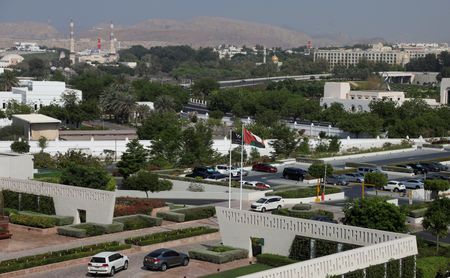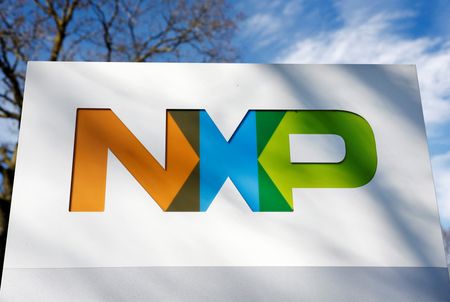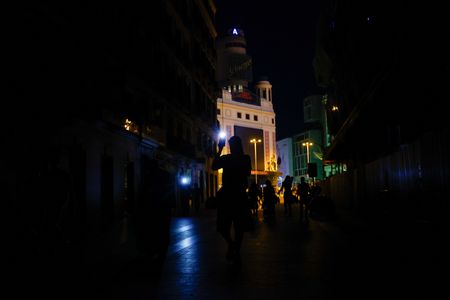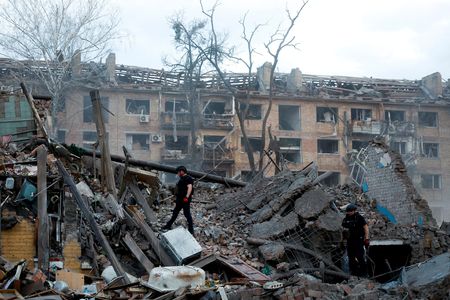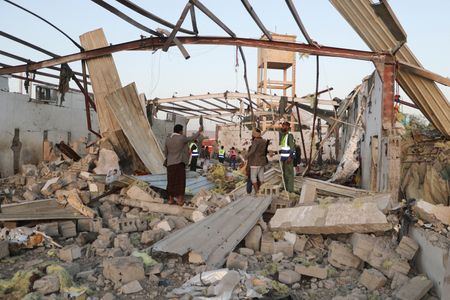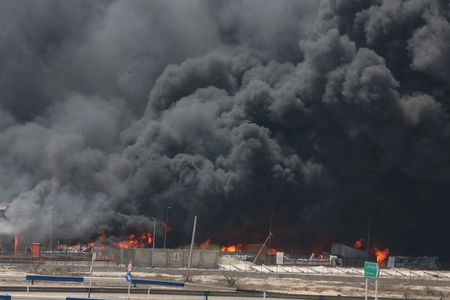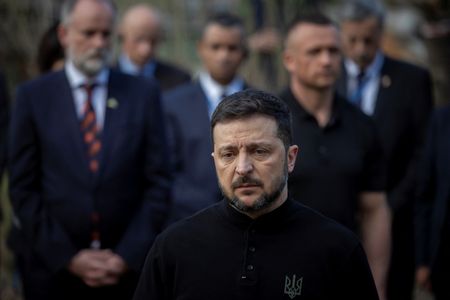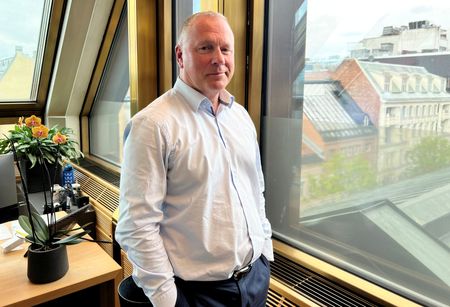By John Irish and Parisa Hafezi
PARIS/DUBAI (Reuters) -Iran has proposed meeting the European parties to a 2015 nuclear deal possibly in Rome this Friday if talks resume with the United States, four diplomats said on Monday, cautioning that there has yet to be a response from the Europeans to the idea.
Iran is looking to build on the momentum of nuclear negotiations with the United States that resumed in Oman on Saturday and after talks with Russia and China last week.
Omani officials have said a new round of U.S.-Iran talks could be held on May 3 in Europe. No formal decision has been taken.
Iran’s reach out to Britain, France and Germany, known as the E3, suggests Tehran is keeping its options open, but also wants to assess where the Europeans stand on the possible re-imposition of U.N. sanctions before October, when a resolution ratifying the 2015 accord expires.
Two E3 diplomats and a Western diplomat said Iran had communicated after last Saturday’s talks with the United States a proposal to meet possibly in Rome on Friday.
Should that not be possible, the Iranians also suggested discussions in Tehran before that date, the diplomats said.
The second round of negotiations between Washington and Tehran took place in Rome with Iran saying serious differences remained.
An Iranian official confirmed the proposal, but said the E3 had not responded so far.
The European and Western diplomats said the E3 were assessing whether it was in their interest to meet Iran now or wait to see how talks with Washington developed, but ruled out a meeting in Tehran.
“It is important to remain on the same page with all parties to the 2015 deal. Therefore, meeting the E3 countries this week ahead of the next round of talks with Americans would be useful,” said the Iranian official.
UN SANCTIONS DEADLINE
Iranian Foreign Minister Abbas Araqchi said on Thursday he was ready to travel to Europe for talks, although he suggested that the ball was in Europe’s court after ties had soured between the two sides.
Since September, Tehran and the three European powers have met several times to discuss their ties and the nuclear issue.
The most recent meeting in March was held at the technical level, looking at the parameters of a future deal to secure a rollback of Iran’s nuclear programme in return for the lifting of sanctions.
Trump, who abandoned the 2015 pact between Tehran and world powers during his first term in 2018, has threatened to attack Iran unless it reaches a new deal swiftly that would prevent it from developing a nuclear weapon.
The West suspects Iran is pursuing nuclear weapons, which it denies. The threat of renewed sanctions is intended to pressure Tehran into concessions, making detailed discussions on strategy between the Americans and Europeans vital, diplomats say.
Because the United States quit the 2015 nuclear accord with Iran, it cannot initiate its mechanism for reimposing sanctions, called snapback, at the United Nations Security Council.
That makes the E3 the only participants in the deal who are capable of and interested in pursuing snapback.
When asked whether the proposal to meet Europeans was about snapback, the Iranian official indicated that was partly the aim.
“Talks with the U.S., particularly on the nuclear steps, are not moving fast and obviously we need more time and Tehran is not much in favour of an interim deal, because of lack of trust to American side,” the official said.
“What if under an interim deal, we fulfil our step and the other party does not. We need Europeans to understand that we want a new deal and we are ready to take steps to limit our enrichment but we need time.”
The British and German foreign ministries declined to comment specifically on whether Iran had proposed a meeting for later this week. France’s foreign ministry did not immediately respond for comment.
(Reporting by John Irish and Parisa Hafezi; editing by Mark Heinrich, William Maclean)

